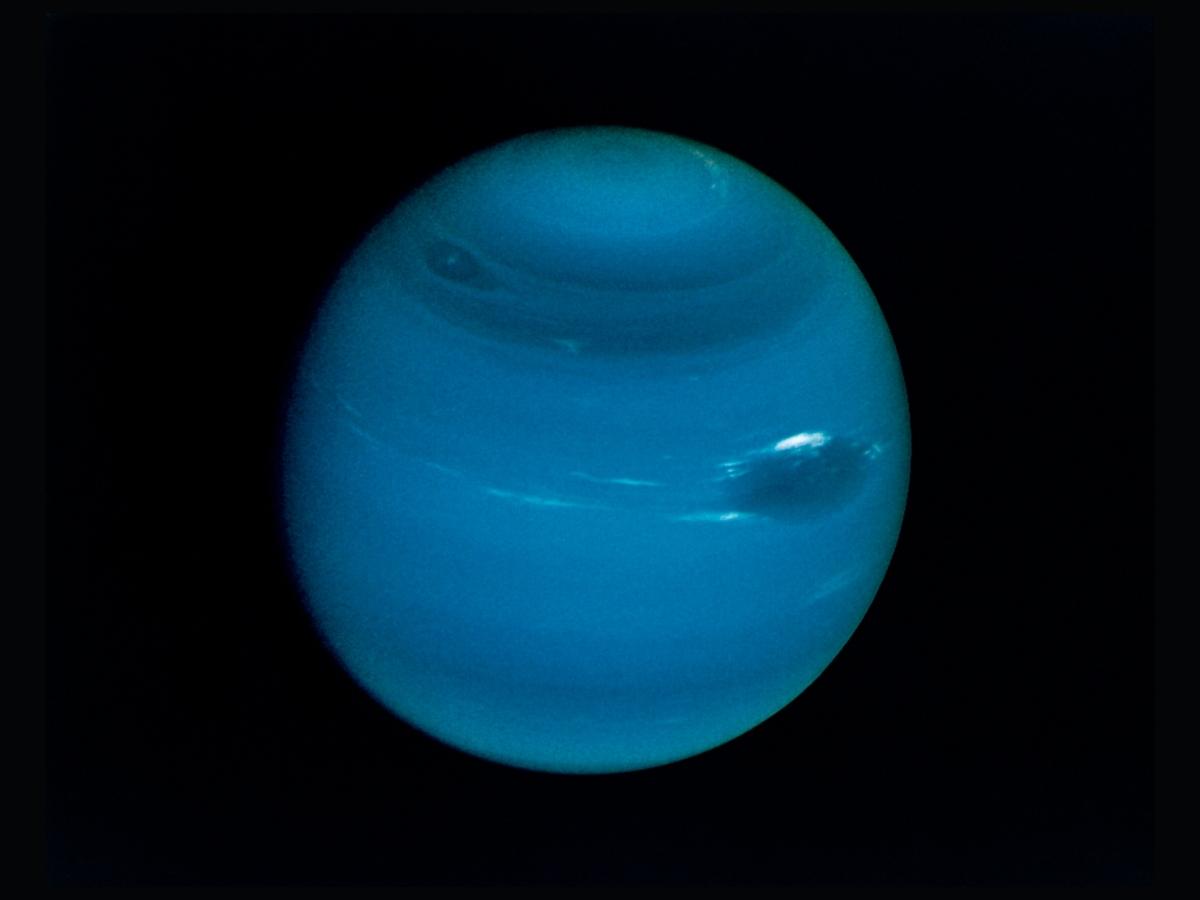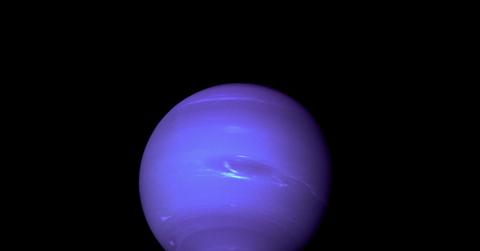Will We Ever Discover Oceans on Neptune? What Science Says
Updated May 30 2023, 11:54 a.m. ET
The planet Neptune, the eighth planet from the sun, is known as an "ice giant" with a deep blue color. NASA tells us that Neptune is more than 30 times as far from the sun as Earth and is the only planet within our solar system that's not visible to the naked eye. Neptune has seen dramatic temperature changes and some scientists wonder about possible Neptune oceans.
According to Universe Today, scientists have conducted research into whether it's actually possible for an ocean to form on Neptune. NASA has also speculated as to whether or not Neptune has the right conditions for an ocean to form and to last.
Here's what the conditions are like on Neptune.
As NASA notes, Neptune is in general cold, dark, and windy. It's about four times as wide as Earth, and a day on Neptune lasts about 16 hours. Neptune has at least five main rings and 14 moons. Most of the planet's mass is made of water, methane, and ammonia above a rocky core. It is not a life-sustaining planet for humans. Uranus is the other of the two ice giants of our outer solar system.

This is Neptune as seen from the Voyager II in 1989.
Here's what NASA says about possible oceans on Neptune.
According to NASA, scientists believe it's possible there is an ocean of "super hot water under Neptune's cold clouds." If that is the case, very high pressure there prevents that hot water from boiling away.
In 2006, researchers Sloane J. Wiktorowicz and Andrew P. Ingersoll from the California Institute of Technology in Pasadena calculated the odds of Neptune having oceans. According to Universe Today, the chances of an ocean forming depends on the ratio of water to hydrogen as well as the temperature. If too hot or too low of a water ratio, it wouldn't be an ocean but a cloud or fog base.
Those researchers used data from the Voyager spacecraft and from scientists here to determine that there was probably less than a 15 percent chance of oceans existing on Neptune. The data showed that Neptune was probably too dry and too warm for oceans to form. However, they said that the chances will increase over a very long time (maybe over a billion years) to perhaps a 40 percent chance.
Why might it matter to find oceans on Neptune?
You may wonder why the possibility of oceans on Neptune is relevant here on Earth. According to EarthSky, researchers in the U.S. and Korea have found that the water on Uranus and Neptune could be rich in magnesium. It says that many super-Earths and possibly "mini-Neptunes" could have large global oceans as well.
The research on both Neptune and Uranus are largely intended to help scientists understand the thermal and electric processes occurring on the ice giants. Studying whether or not oceans could exist on Neptune does not, however, mean that scientists hope humans could one day inhabit the planet. Neptune is still considered uninhabitable thanks to extreme conditions in which humans and other organisms could not survive.
